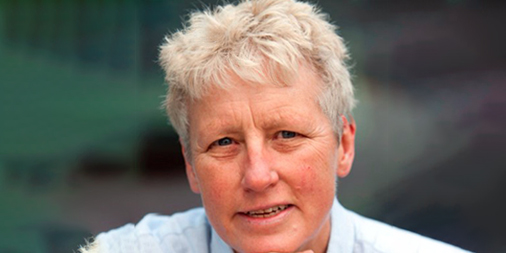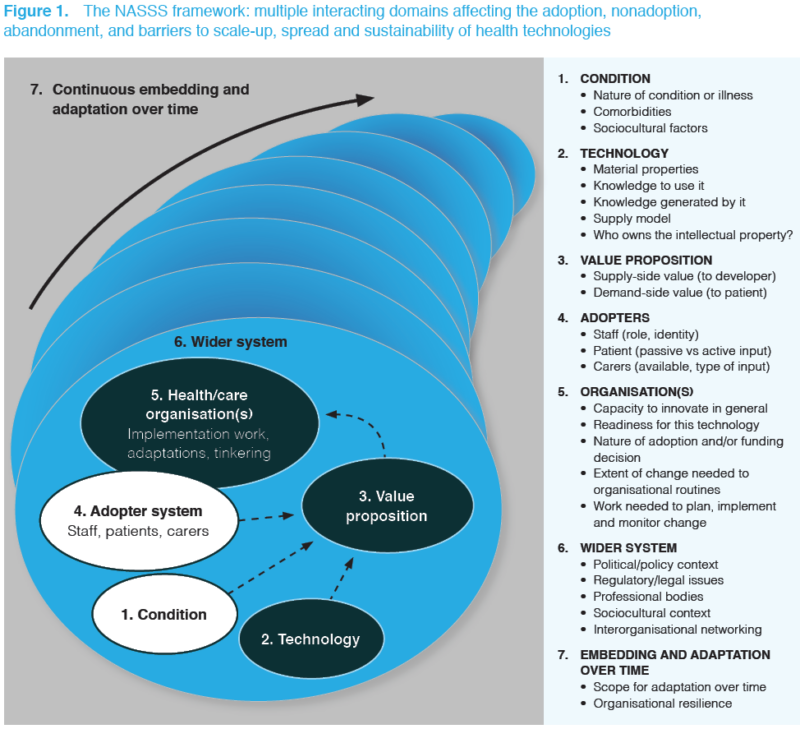 Who remembers a failed technology project in healthcare? Probably everyone (an estimated 80 percent of such projects fail!).
Who remembers a failed technology project in healthcare? Probably everyone (an estimated 80 percent of such projects fail!).
Though technologies are often viewed as the route to better, safer and more efficient care, they rarely deliver all the anticipated benefits.
Only rarely has real world technology implementation been studied in a way that has revealed the full complexity and organisational context – and shown how that complexity is not handled well.
Prof Greenhalgh will share the new framework she’s developed to overcome the five persistent problems that undermine the success of technology projects: the nonadoption, abandonment, scale-up, spread and sustainability (NASSS) framework.
*** PLEASE REGISTER FOR THE ZOOM CALL HERE (TO RECEIVE YOUR INDIVIDUAL LOGIN) ***
 The framework is based on both a narrative systematic review and multi-site empirical work, and addresses seven interacting domains of technology projects – with simple, complicated and complex aspects.
The framework is based on both a narrative systematic review and multi-site empirical work, and addresses seven interacting domains of technology projects – with simple, complicated and complex aspects.
This new framework has so far been tested on video outpatient consultations, pendant alarms, GPS tracking devices for people with dementia, telehealth kit for heart failure, integrated data warehouses for risk assessment that span primary, secondary and social care, and various patient- and carer-held apps.
Findings so far suggest that if all seven domains are in the ‘simple’ zone, the technology programme has a high chance of success. If some are complicated, there is still a good chance of success – but things will take a lot longer and be more expensive. But if the technology programme is characterised by multiple domains that are not just complicated but complex, such programmes have limited chance of ever being successfully implemented.
Join Q’s ‘Closing the gap: developing improvers for a complex world‘ special interest group for sharing and discussion, to hear about future Zoom calls, and access recordings of past ones (eg Prof Mary Uhl-Bien). Open to all.
Pre-reading: ‘‘How to Improve success of technology proejcts in helath and social care’, public health research & practice (Sept 2018).
Biography
Trish Greenhalgh is Professor of Primary Care Health Sciences at the University of Oxford. She is an internationally recognised academic in primary health care and trained as a GP.
As co-Director of the Interdisciplinary Research In Health Sciences (IRIHS) unit, she leads a programme of research at the interface between social sciences and medicine, with a strong emphasis on the organisation and delivery of health services.
Her research seeks to celebrate and retain the traditional and humanistic aspects of medicine while also embracing the unparalleled opportunities of contemporary science and technology to improve health outcomes and relieve suffering.
She’s also active on Twitter @trishgreenhalgh (with 40k followers).
 Zoom call
Zoom call